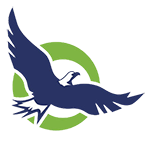Read the detailed description of Quest's Summer Camp information!
The Happiness Advantage
In recent years, there has been a much larger focus on happiness and positive psychology as opposed to negative aspects of mood and mental illness. In his book, The Happiness Advantage, Shawn Achor, discusses some of the latest research and strategies that can be used to boost happiness. A meta-analysis of happiness research of over 200 scientific studies on nearly 275,000 people that found that, “happiness leads to success in nearly every domain of our lives, including marriage, health, friendship, community involvement, creativity, and in particular our jobs, careers, and businesses [1].”
To me, the really exciting part about some of this happiness research is that it fits with positive ways that people can make changes, impact their lives and others, and that even for people who don’t naturally start out as more happy, they can learn skills to alter mindset and change their brains–As we talk about at Quest, this is neuroplasticity in action, where our brains are bendable and always capable of growing and changing.
UPCOMING PROGRAMMING
School Year Programming
School year therapy groups are ten-week afternoon therapeutic groups that are designed to provide therapy by specifically targeting individualized goals for our campers.
A minimum of one hour includes therapeutic activities that heavily target the development of social skills, emotion regulation, and positive behaviors, while the next hour focuses on further skill development by providing a variety of experiential activities as part of a group to create opportunities to observe the child in a natural setting and intervene to facilitate change. Some quarters provide a special emphasis to improve skills, while other quarters have a more general offering based on the campers’ interests and often include programming in areas such as video game making, drama, art, movie making, etc.
Winter Group Dates are:
January 4th – March 8th
Wednesday Evenings 5:30 to 7:30
at the Central Library in Huntington Beach
Summer Programming
Quest’s intensive summer program offers 7 weeks of programming (6 weeks of day camp and 1 week of residential). The summer program includes individualized behavior plans, group therapy, occupational therapy, a social thinking curriculum, mindfulness activities, yoga, soccer, games in the park, and field trips (beach, boomers, rock climbing, ropes course, bowling, etc.) to create a fun and engaging, therapeutic camp experience for children.
Weekly parent meetings are also included. The summer program has been found across multiple studies to significantly reduce hyperactivity, impulsivity, aggression, and inattention, while improving peer relations, family relations, athletic competency, behavioral control and self-esteem. Quest has also been found to improve social awareness, social cognition, social communication, and social problems.
Summer Camp Dates are:
June 25 through August 9th

